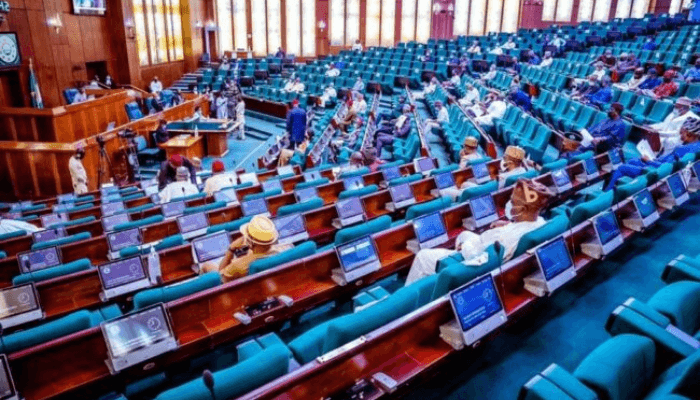Reps race against time to deliver electoral reforms by December
If there is one promise Nigerians have heard too often, it is that the promise of a free, fair and credible elections. Now, with less than two years before the 2027 vote, the House of Representatives says it is serious about change.
The Green Chamber have drawn a December deadline to deliver a package of electoral and constitutional reforms that, if passed, could reshape the way Nigerians choose their leaders.
Over a dozen bills are on the table, tackling everything from the timing of elections to who gets to run for office, and even how political parties are allowed to operate. Taken together, the reforms could mark the most ambitious attempt in years to address long-standing complaints about the credibility of Nigeria’s polls.
Read also: Reps backs Tinubu borrowing for growth, poverty reduction Speaker
What is on the table?
First, lawmakers want to hold all elections in one day. In practice, this would mean that presidential, governorship, National Assembly, and state assembly contests are all decided in a single outing. Abbas Tajudeen, Speaker of the House of Representatives believes this could slash election costs by up to 40 percent and boost voter turnout, as citizens tend to show up more for the high-stakes presidential vote than for state-level polls.
Second, the proposals would open the door for independent candidates. This has long been a demand of civil society groups who argue that Nigeria’s political parties are gatekeepers that shut out credible contenders. Allowing independents could give voters more choice – though it may also splinter the ballot.
Another proposed shift would be transferring the power to appoint the chairman of the Independent National Electoral Commission (INEC) away from the President and into the hands of the National Judicial Council. The thinking is simple: fewer political fingerprints on the appointment process could strengthen the perception of INEC’s neutrality.
Lawmakers are also pushing for stricter rules on party politics. For instance, party executives would be barred from holding elective offices at the same time, reducing conflicts of interest.
Other ideas on the table include establishing an Electoral Offences Commission, ensuring that all pre-election matters are resolved before officeholders are sworn in, creating a Local Government Elections Commission, and even reserving parliamentary seats for women and persons with disabilities.
The politics of timing
The big question, of course, is whether all this can be done in time. Electoral reforms are notorious for dragging on in Nigeria, often getting caught in partisan crossfire or slowed by the cumbersome process of amending the constitution, which requires approval from two-thirds of state Houses of Assembly.
But the Speaker, meeting with a visiting European Union delegation in Abuja last week, promised that things would be different this time. He revealed that both Senate and House leaders had agreed to isolate electoral amendments from other constitutional issues and push them through by December.
“We agreed that because of some of the amendments that we want to bring forth , some are by way of Act of Parliament, some are by constitutional amendment – we will fast track and isolate the electoral issues and take them as one, single entity; and push them forward for the National Assembly to deliberate and take a position; and then send them to the sub-nationals (state Houses of Assembly) to also consider them within a short timeframe, between now and December,” he said.
“We will not be late,” he stressed with confidence, stressing that the reforms would give INEC enough time to implement changes well before the 2027 polls. His assurance was a direct response to EU concerns.
The delegation, led by Barry Andrews, a Member of the European Parliament, welcomed the reform push but warned that INEC requires at least a year to adapt to any new laws. “Time is of the essence”, Andrews said.
Why this matters
The 2023 elections were a mixed bag. While some praised the introduction of technology such as the BVAS (Bimodal Voter Accreditation System), many voters and observers complained of late arrivals, logistical failures, violence, and a lack of transparency in result collation. For a country with Africa’s largest democracy, the credibility of elections is not just a domestic issue; it shapes Nigeria’s international standing and the legitimacy of its leaders.
Read also: Reps begin review of impact, sustainability of naira-for-crude policy
Ultimately, the reforms will test not just the National Assembly’s legislative agility, but also its political courage. Many of the proposals, from curbing decamping to reserving seats for women strike at entrenched habits and power structures.
Passing them will require lawmakers to put national interest above partisan calculation, something Nigerian politics does not always deliver.
Still, the fact that a December deadline has been set is significant.
It creates a sense of urgency and gives Nigerians something concrete to hold their lawmakers accountable to.
If the reforms succeed, 2027 could be a turning point for Nigerian democracy: cheaper, fairer, and more inclusive elections, with less room for manipulation.
If they fail, Nigerians may once again head to the polls with old frustrations intact, and the familiar promise that things will surely be better “next time.”

